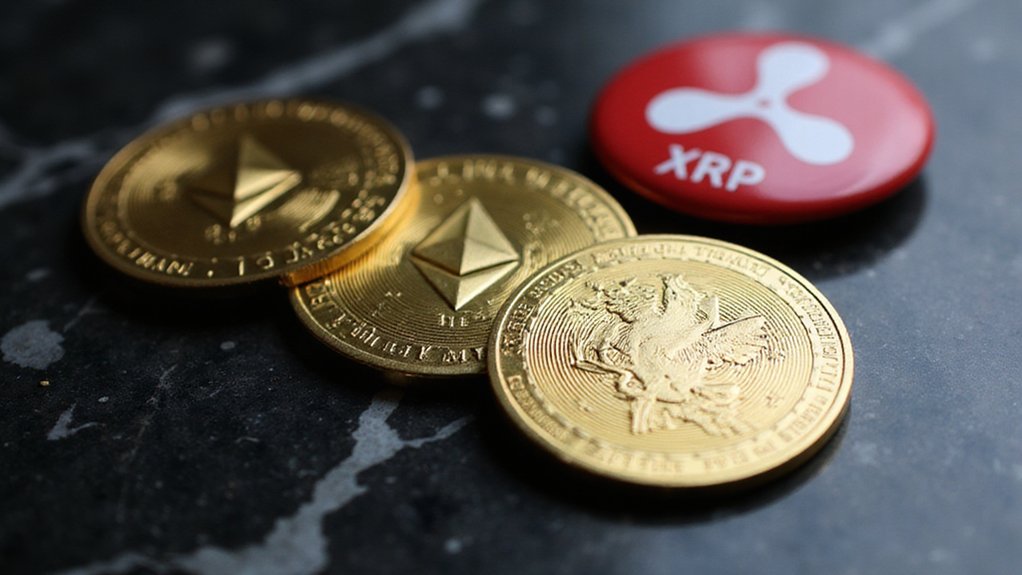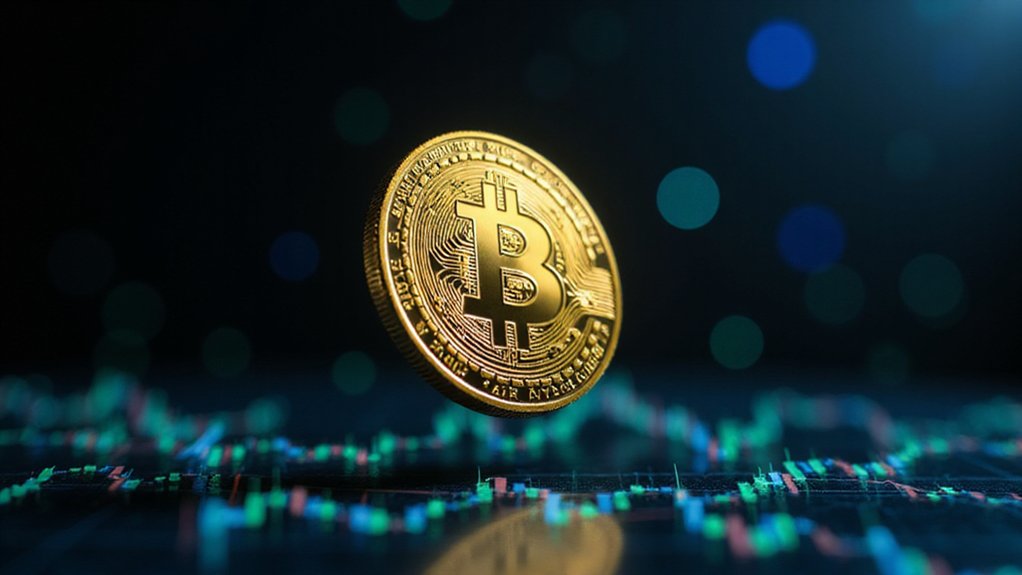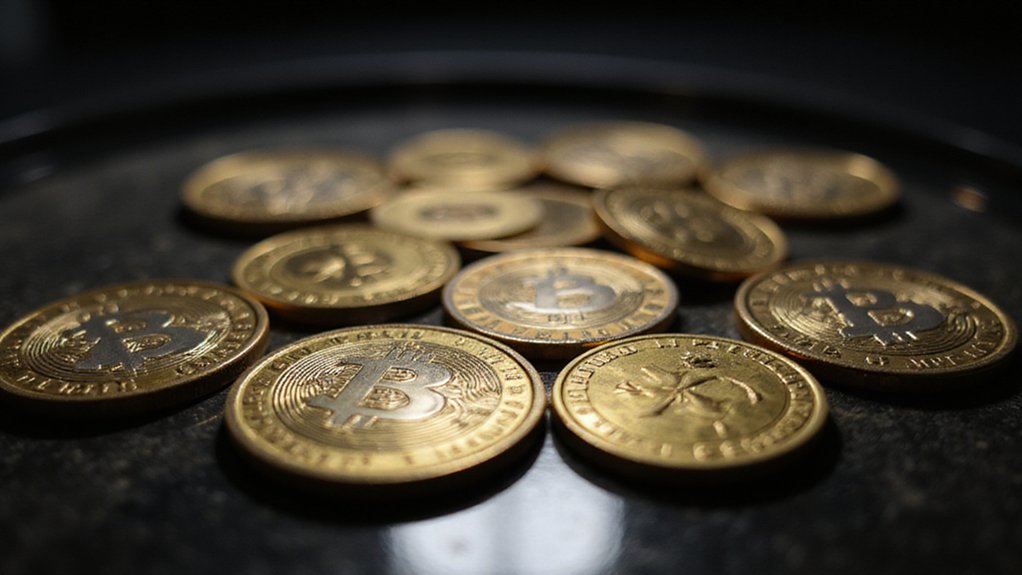How does one measure the distance between presidential dignity and digital pump-and-dump schemes? The Trump family’s foray into memecoins has created a fascinating case study in political finance that would make even seasoned regulatory attorneys reach for their antacids.
Presidential power meets cryptocurrency chaos in a regulatory nightmare that transforms political influence into tradeable digital assets.
The OFFICIAL TRUMP token, operating on Solana’s blockchain infrastructure, briefly achieved a $10 billion market capitalization—a figure that speaks volumes about speculative fervor rather than underlying utility.
Entities like CIC Digital LLC and Fight Fight Fight LLC maintain substantial control over token supply, creating what economists might charitably describe as an “asymmetric distribution model.”
Meanwhile, the creators have extracted approximately $320 million in fees despite the token’s subsequent decline, proving that in memecoin mathematics, losses and gains rarely correlate with initial enthusiasm.
The ethical implications present a labyrinthine challenge for regulatory frameworks never designed to address cryptocurrency-mediated political access.
Foreign nationals purchasing tokens to curry presidential favor represents a novel interpretation of influence peddling that existing campaign finance laws struggle to categorize.
The dinner hosted for top memecoin holders transforms speculative trading into something resembling a pay-to-play political contribution system—albeit one denominated in digital assets rather than traditional currency. The exclusive event attracted notable figures including Justin Sun, representing the global reach of this controversial fundraising mechanism.
Retail investors, predictably, have borne the brunt of market volatility that characterizes speculative cryptocurrency trading.
The token’s precipitous decline following its meteoric rise follows patterns familiar to anyone who has observed memecoin market dynamics, where community hype and social media momentum substitute for fundamental value propositions.
The Solana blockchain’s decentralized architecture guarantees transaction transparency, though this technical feature provides little comfort to investors watching their holdings evaporate.
Legal scholars and ethics watchdogs have expressed concerns about precedents established when political figures monetize their influence through cryptocurrency ventures.
The controversy divides public opinion between those viewing these activities as legitimate business ventures and others perceiving them as corruption disguised by blockchain technology. Cryptocurrency trading platforms continue to feature these Trump family memecoins prominently despite the ongoing volatility and regulatory scrutiny.
The situation illuminates broader questions about cryptocurrency’s role in political finance while demonstrating how traditional ethical boundaries become murky when filtered through decentralized financial instruments and memecoin market mechanics. The token’s distribution mechanisms and concentrated supply control raise fundamental questions about whether speculative trading can ever align with transparent governance principles.









